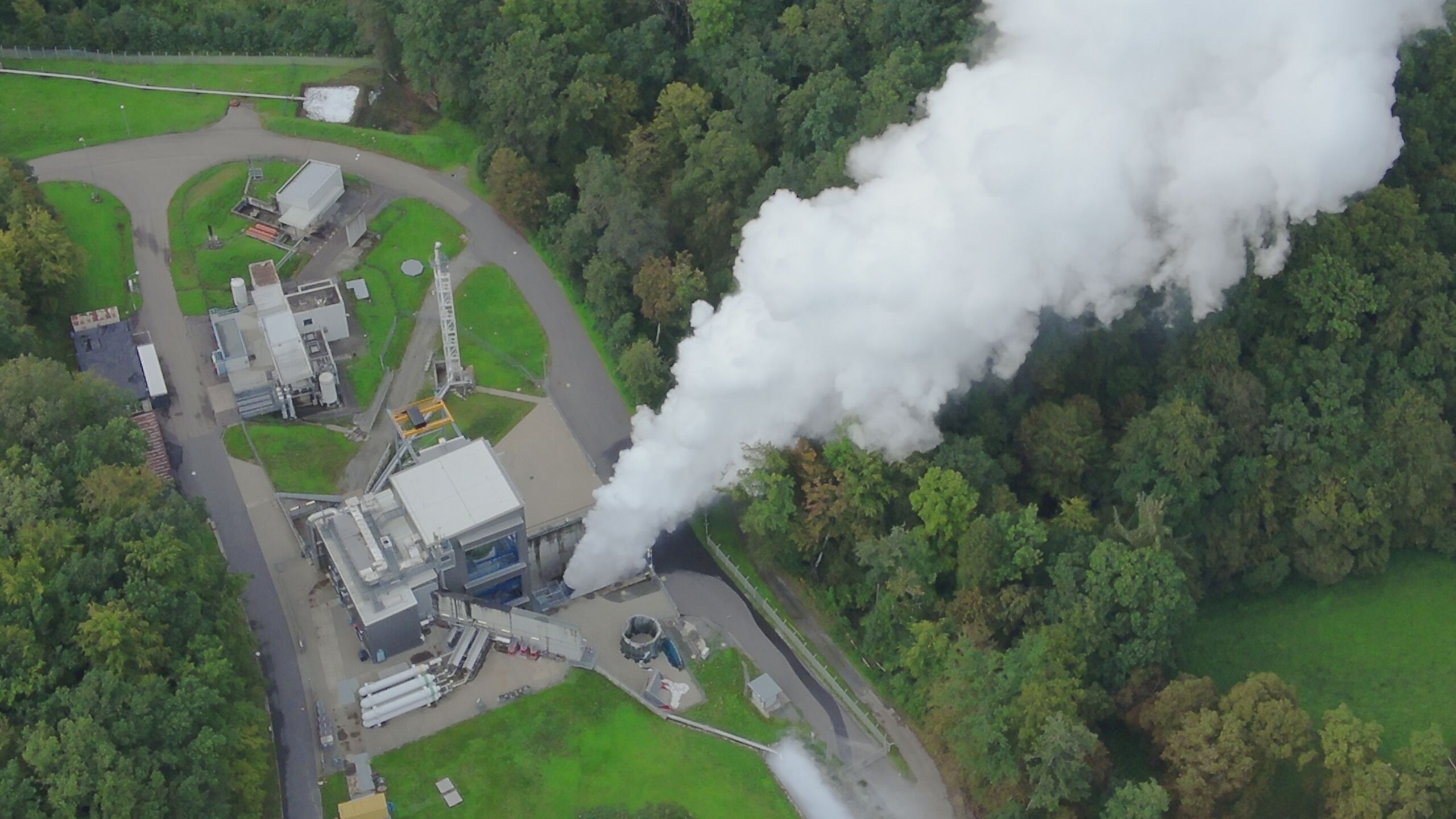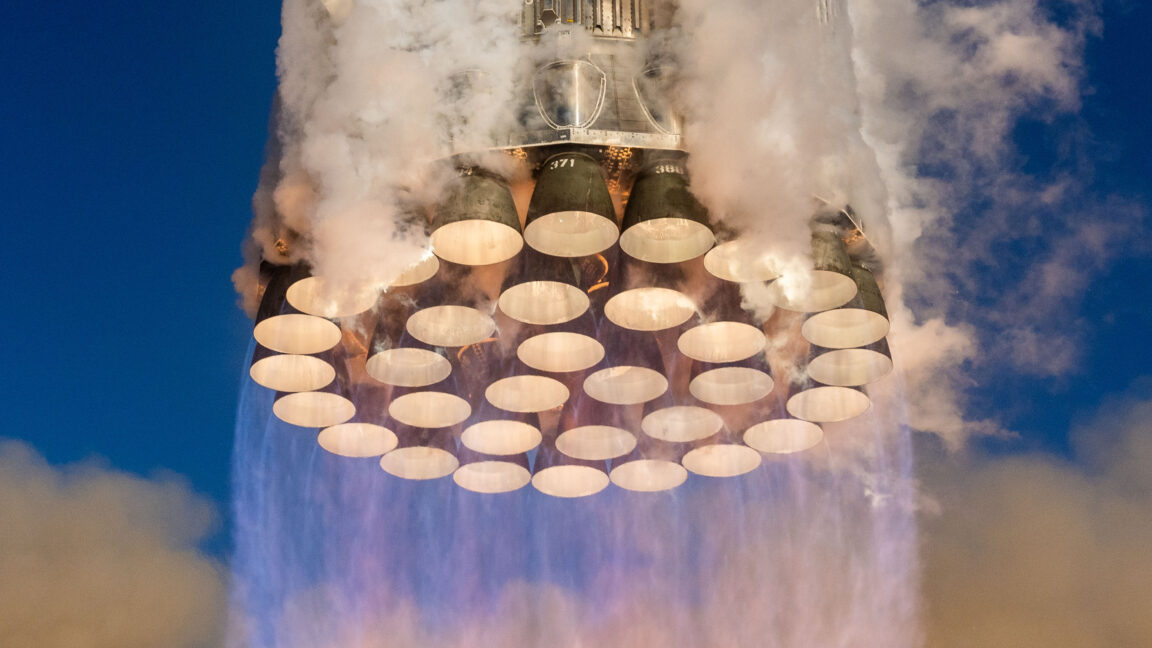Europe's new Ariane 6 rocket is reaching its decisive phase of testing, officials said this week. This includes a short- and long-duration firing of the rocket's first stage at European launch facilities in French Guiana, tests that could occur today and about one month from now.
"They are really the decisive moments when we see how the engines operate under full throttle," the director general of the European Space Agency, Josef Aschbacher, said during a press briefing on Monday.
Aschbacher declined to specify a launch target for the new medium-lift rocket, the development of which began in 2014 was originally due to make its debut in 2020. The European Space Agency and the rocket's prime contractor, ArianeGroup, are now working toward a launch in 2024.
The development of Ariane 6 has become critical due to these delays and the loss of access to the Russian Soyuz rocket after the onset of war in Ukraine. This has forced the European Space Agency to rely on launch competitors, particularly SpaceX and its Falcon 9 rocket, for getting some of its critical missions into space.
"Guaranteed access to space is a must for Europe, and that is why we have put all of this attention on developing the Ariane 6 launcher," Aschbacher said. "This is fundamental."
Hot fire tests
The program to develop Ariane 6 took an important step forward on Friday with the successful full-duration test firing of the Ariane 6 rocket's upper stage at a test site in Lampoldshausen, Germany. The test encompassed a firing of the second stage throughout its flight profile for 11 minutes. While European engineers are still reviewing data from this test, it appears to confirm the second stage is ready for flight.
The focus, therefore, now turns to the first stage, which is powered by the Vulcain 2.1 engine and two or four solid rocket motor boosters. This rocket underwent a wet dress rehearsal on July 18 and was supposed to ignite its Vulcain engine briefly. However, the European Space Agency stated afterward that the hot fire test did not occur because operators "ran out of time."
During Monday's press briefing, the director of space transportation for the French space agency CNES, Carine Leveau, offered a little bit more information about an issue with the rocket's ground systems during the July 18 test.
"We needed more time to be sure that everything was well prepared with the control bench," she said. "We noticed some specific behavior with the control bench. We needed to understand why this occurred. Today, everything is OK and clearly explained." Alas, she did not explain what was explained.
A second attempt to conduct a short hot fire test, for about four seconds, is planned for Tuesday, September 5. If all goes well, the European rocket officials said, a full-duration test lasting nearly eight minutes will occur in early October.
No launch date set
Aschbacher said he would wait to set a launch date for the Ariane 6 until the completion of these critical hot firing tests. If there are issues discovered with the rocket, its engine, or the ground systems, these will necessitate further delays.
Even so, Aschbacher would not commit to a launch date during the first half of 2024 if all went well with the tests.
"As we have said repeatedly, we will define the launch period after the tests have been conducted," he said. "There’s a lot of uncertainty still along the way. Please allow me to not speculate at this time. The chances, if everything goes perfect, are pretty good that it’s not too late in the next year. But there are still a lot of unknowns ahead of us which we need to go through."
Costs going up
Ariane 6 was developed to be more price competitive, particularly with SpaceX's Falcon 9 rocket. European officials said they will still beat the price of the Ariane 5 rocket but acknowledged that inflation is taking a toll on prices.
"The recurring costs of the Ariane 6 are impacted by inflation because we are in the real economy, and you can imagine we have the same issues," said Stéphane Israël, CEO of Arianespace, which markets and operates Ariane rockets. "For sure, there is inflation, and we have to cope with this fact."
The original price target for an Ariane 62 version of the rocket, which has two side-mounted boosters, was reportedly $76 million. A more powerful version with four boosters, Ariane 64, was supposed to cost $126 million. At present, a Falcon 9 rocket, which is roughly comparable in lift capacity, has a base price of $67 million.
Asked for a specific price Ariane is selling its rockets, Israël declined to specify. "The price? It’s better to speak about them with our customers," he said.
Feeling the loss of the Soyuz
The retirement of the Ariane 5 rocket and delays in development of the Ariane 6 vehicle have left a large hole in Europe's launch manifest, including for some of the continent's most important science missions.
"Of course there is a crisis of launchers in Europe; that is why we are all focused on Ariane 6," said Philippe Baptiste, chairman and CEO of the French space agency CNES. "As far as institutional launch is concerned, the root of the crisis is mostly the Soyuz. The war in Ukraine had tremendous consequences, including the end of the Soyuz in French Guiana."
Europe recently launched its Euclid space telescope on a Falcon 9 rocket, and its EarthCARE planetary science mission will also launch next year on the SpaceX rocket. However, during the news conference, Israël seemed to have a difficult time saying the name of his competitor out loud. "Euclid has been launched by another launcher," he said. "It will be the same for EarthCARE."
Still to be determined is the fate of four Galileo navigation satellites. That decision remains under consideration by the European Commission, but it seems most probable that the four satellites will be launched on two Falcon 9 missions since that is the only Western rocket with any spare capacity for the next couple of years.


